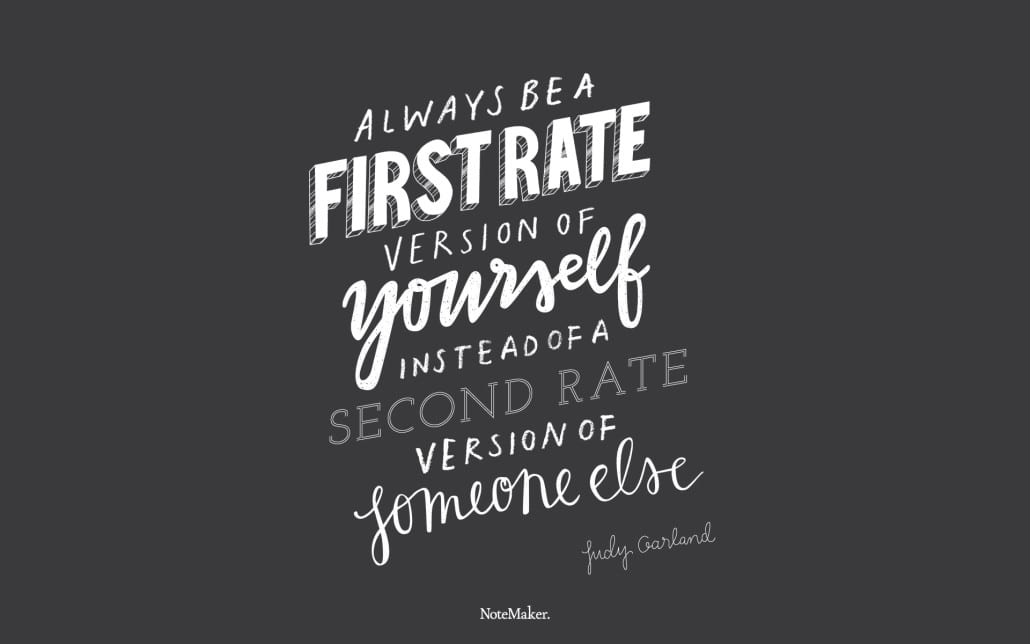“What if I tell someone about my product and they steal my idea?”
One of the most common questions that comes up with my entrepreneurs in the beginning of Factory45 is the concern about copycats.
I can’t count how many times I’ve been asked, “Should I have my production partner / patternmaker / samplemaker sign a nondisclosure agreement?”
I’ve worked with entrepreneurs who have spent thousands of dollars on patents and trademarks without ever having their first customer.
There is a lot of concern churning around the fashion industry about being ripped off. And with the latest scandals coming out of Etsy, Urban Outfitters and others, I can’t really blame them.
It’s not unheard of for a designer to replicate a design someone else is selling and get away with it just by adding a few buttons or changing the length of the sleeves.
When brought to court the copycat designer would win the case simply by changing a few minor specs.
Unfortunately in fashion, that’s the way the (entrepreneurial) cookie crumbles.
In Eric Ries’ book, The Lean Startup, he says early-stage entrepreneurs spend too much time worrying about their idea being stolen and not enough time telling as many people about it as possible.
As a startup, Ries says you should focus on talking about your idea to anyone and everyone willing to listen. That’s the only way to get early customer feedback, hear what your potential customers actually want and find out if your idea is a viable business.
There is a big difference between someone saying you have a great idea and actually getting out their wallet to pay for it.
Believe me, I get it. I perfectly understand how fragile and vulnerable it feels to be in the early stages of a fledgling idea.
I’ll never forget an email I got from one of my Factory45’ers last year who was stressed out over another company she had come across:
“…They are basically doing what I’m doing, like sourcing fabric in North Carolina, being ethical, unisex, drawing inspiration from travels and all of a sudden I don’t feel so original anymore.”
I talked her off the ledge and we laughed about it afterward, but feelings of panic and self-doubt are normal to every startup.
When early stage entrepreneurs worry too much about protecting their idea, Eric Ries calls this “stealth mode.”
He says: “Part of the special challenge of being a startup is the near impossibility of having your idea company, or product be noticed by anyone, let alone a competitor.”
Makes sense, right? Stealing an idea is a lot different than stealing an idea and actually implementing it — especially an idea that hasn’t proven to be successful yet.
If you do reach a degree of success down the road, then competitors are bound to enter the market. People see something that works, and they want to have a piece of it — this comes with the territory.
I recently went through this with Factory45 when I found out that a friend and close colleague had ripped off, rebranded and launched her own version of a sustainable fashion incubator.
So much so that a mutual colleague asked her, “Isn’t this the same program that Shannon is running?”
Should I feel flattered? Maybe. But that’s definitely not how it feels in reality. And anyone who has gone through it will likely agree.
The thing is, as hard as it may be to take it gracefully in the moment, competition is a good thing — it pushes us to continue innovating and prevents us from getting stagnant.
After all is said and done, here’s what I’ve found to be helpful when dealing with competition, copycats and knock-offs:
1.) Before trying to get all Zen about it, spend 20 minutes screaming into your pillow. It will help you move past the anger and frustration faster.
2.) Seek to understand and assume positive intent. This can be applied to so much in life. As hard as it may be, give the benefit of the doubt and assume the similarities were not intentional.
3.) Believe in abundance. There is enough to go around. The universe offers ample opportunity for all of us to succeed. Talk yourself out of scarcity and into abundance.
4.) On the flip side, no one ever won by being a second-rate version of someone else (thanks, Judy). This is where strong brand identity comes into play.
5.) And then — there’s karma.


